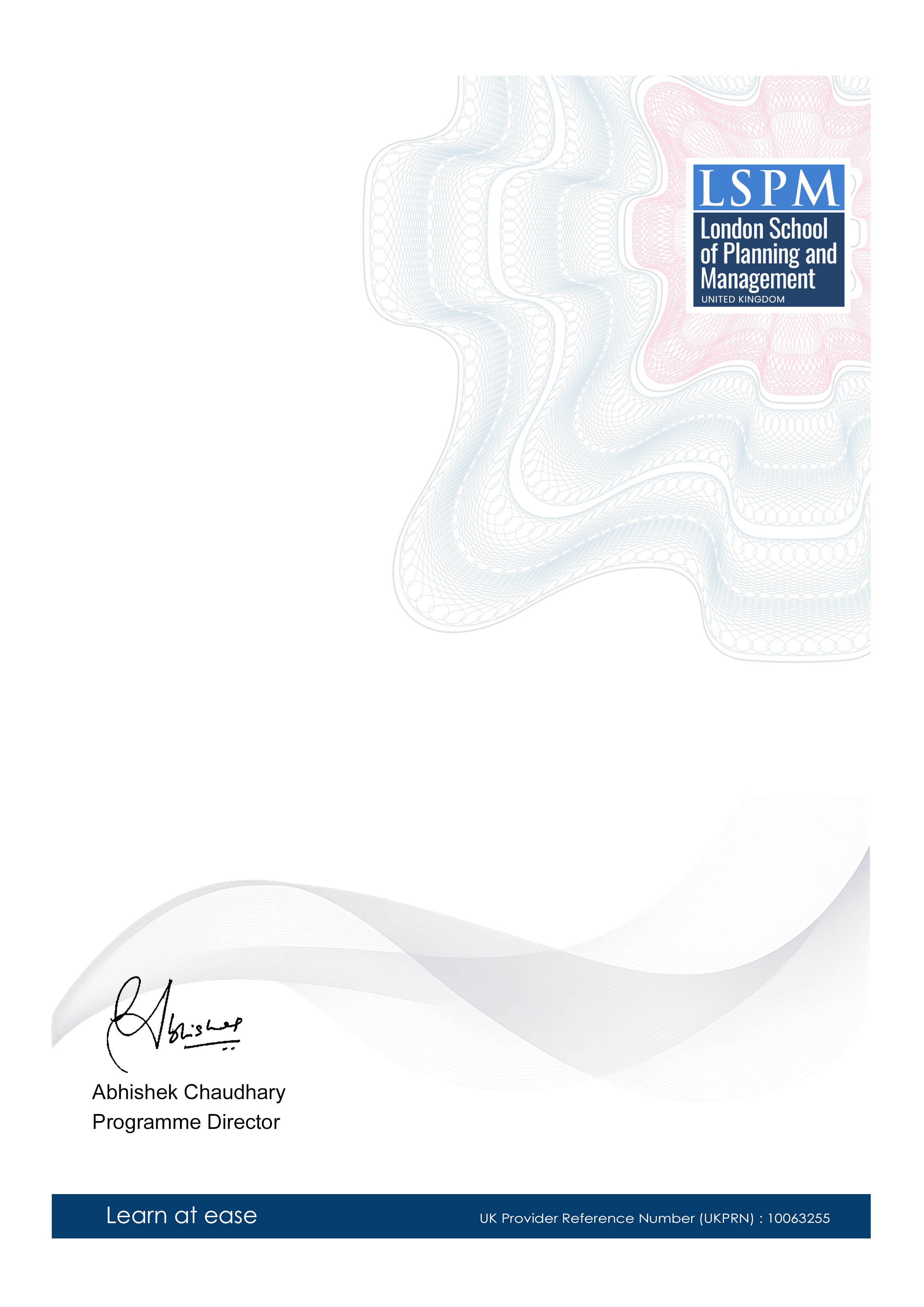Career Advancement Programme in Phylogenetic Diversity Assessment Methods
-- viewing nowThe Career Advancement Programme in Phylogenetic Diversity Assessment Methods certificate course is a comprehensive program designed to equip learners with the essential skills required to excel in the field of biodiversity conservation and research. This course is of paramount importance as phylogenetic diversity assessment methods are increasingly being used to understand and preserve biodiversity.
7,615+
Students enrolled
GBP £ 149
GBP £ 215
Save 44% with our special offer
About this course
100% online
Learn from anywhere
Shareable certificate
Add to your LinkedIn profile
2 months to complete
at 2-3 hours a week
Start anytime
No waiting period
Course details
• Introduction to Phylogenetic Diversity: Understanding the concepts and principles of phylogenetic diversity and its importance in biodiversity assessment.
• Phylogenetic Tree Reconstruction: Techniques for constructing phylogenetic trees using various methods, including distance-based, character-based, and model-based approaches.
• Phylogenetic Diversity Metrics: Overview of different phylogenetic diversity metrics, such as Faith's PD, PD diversity, and phylogenetic species variants.
• Comparative Analysis of Phylogenetic Diversity: Methods for comparing phylogenetic diversity across communities and habitats, including rarefaction, standardization, and null model analysis.
• Phylogenetic Diversity in Conservation Planning: Application of phylogenetic diversity in conservation planning, including identifying priority areas for conservation and monitoring phylogenetic diversity over time.
• Data Analysis in Phylogenetic Diversity: Statistical techniques for analyzing phylogenetic diversity data, including hypothesis testing, regression analysis, and ANOVA.
• Software Tools for Phylogenetic Diversity Analysis: Overview of commonly used software tools for phylogenetic diversity analysis, such as MEGA, PAUP, and R packages.
• Case Studies in Phylogenetic Diversity Assessment: Real-world examples of phylogenetic diversity assessment in different ecosystems, including forests, grasslands, and marine environments.
• Ethics and Best Practices in Phylogenetic Diversity Assessment: Discussion of ethical considerations and best practices in phylogenetic diversity assessment, including data sharing, research transparency, and collaboration.
Career path
Entry requirements
- Basic understanding of the subject matter
- Proficiency in English language
- Computer and internet access
- Basic computer skills
- Dedication to complete the course
No prior formal qualifications required. Course designed for accessibility.
Course status
This course provides practical knowledge and skills for professional development. It is:
- Not accredited by a recognized body
- Not regulated by an authorized institution
- Complementary to formal qualifications
You'll receive a certificate of completion upon successfully finishing the course.
Why people choose us for their career
Loading reviews...
Frequently Asked Questions
Course fee
- 3-4 hours per week
- Early certificate delivery
- Open enrollment - start anytime
- 2-3 hours per week
- Regular certificate delivery
- Open enrollment - start anytime
- Full course access
- Digital certificate
- Course materials
Get course information
Earn a career certificate

